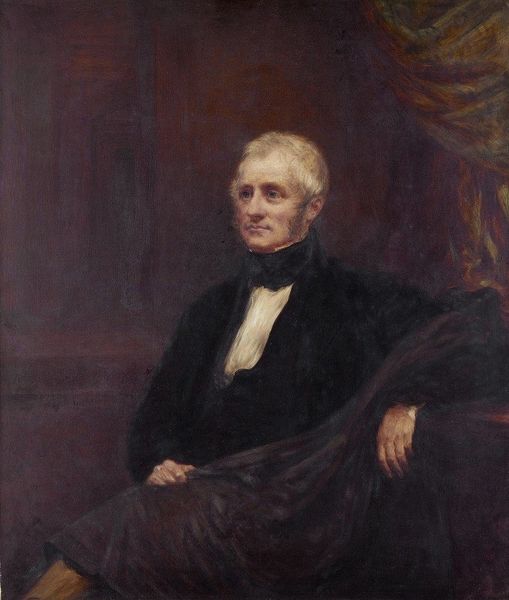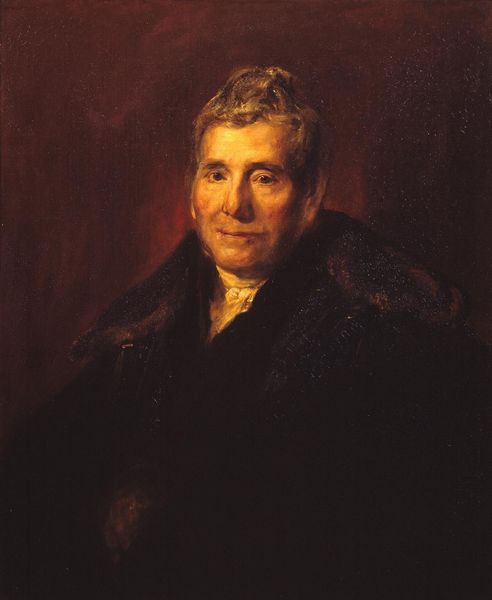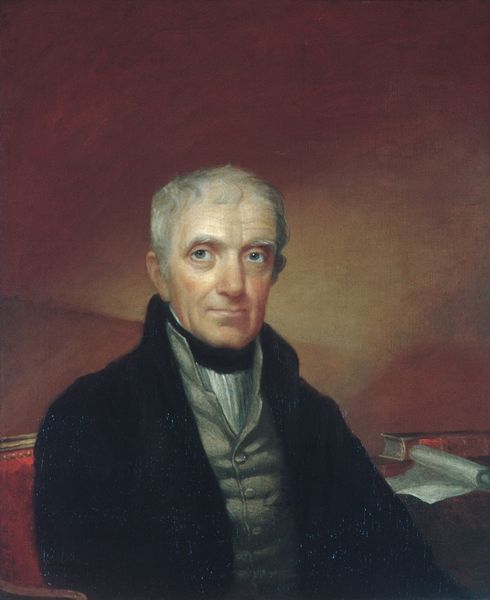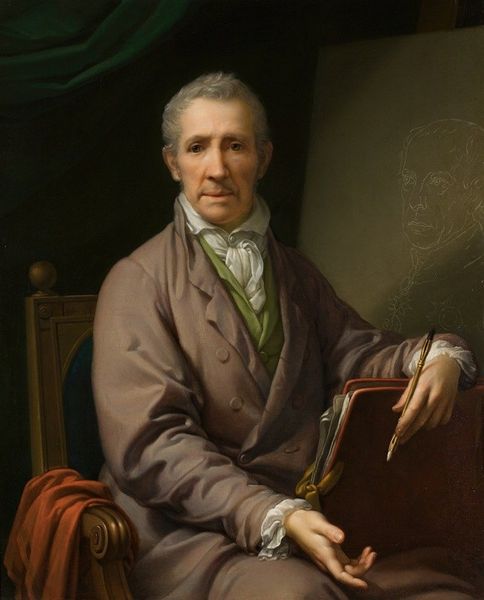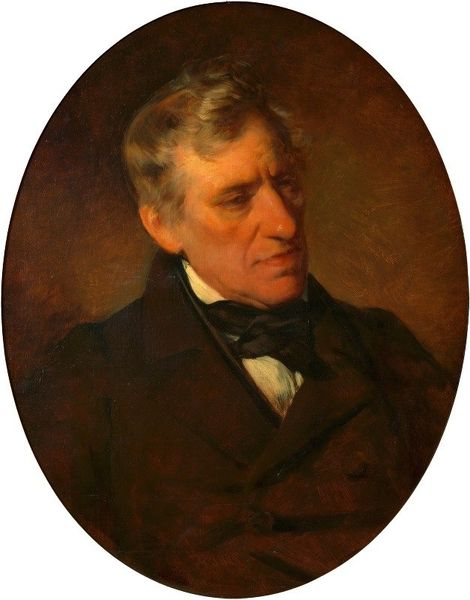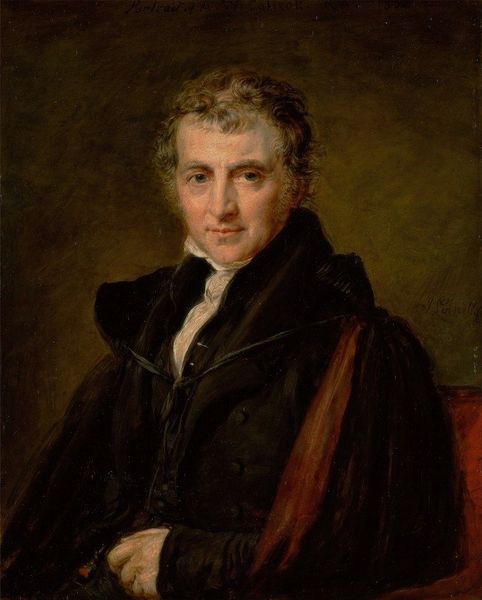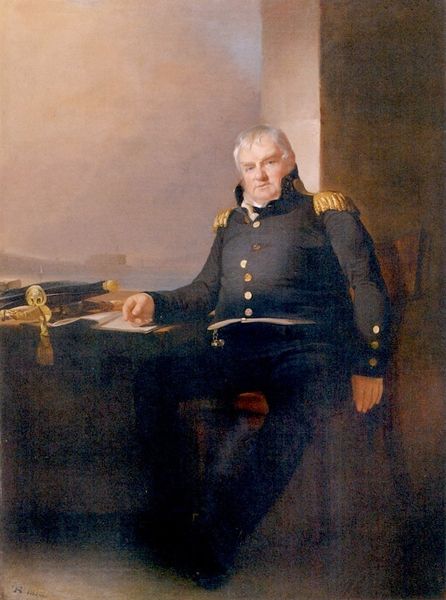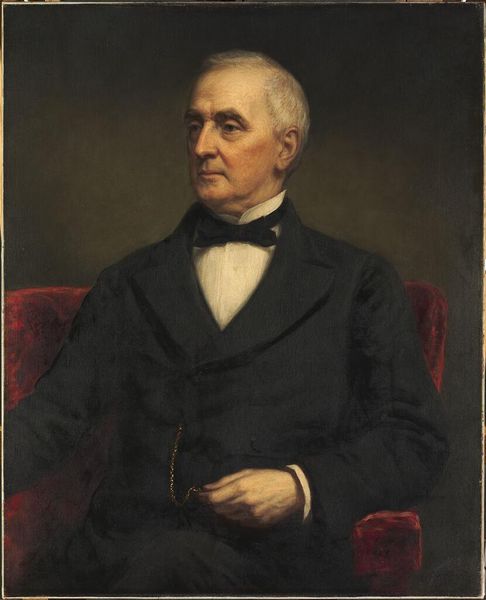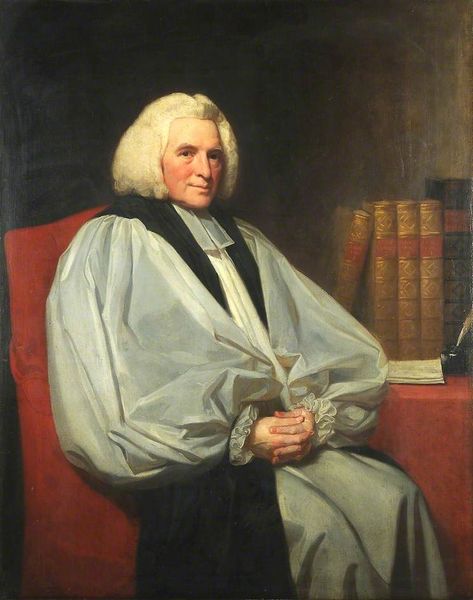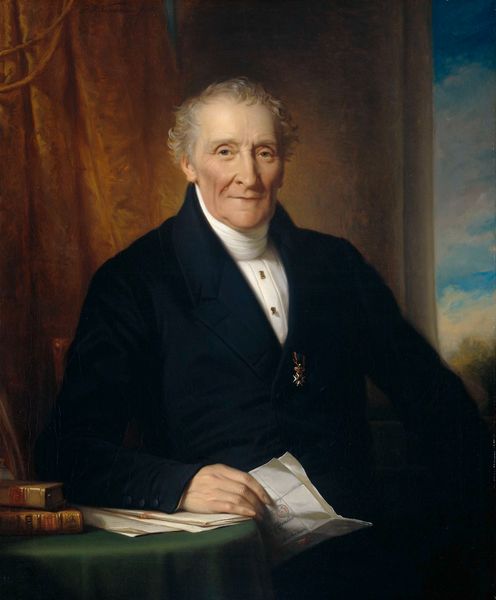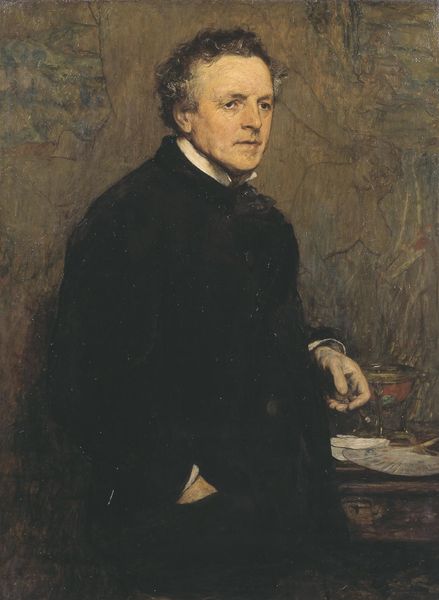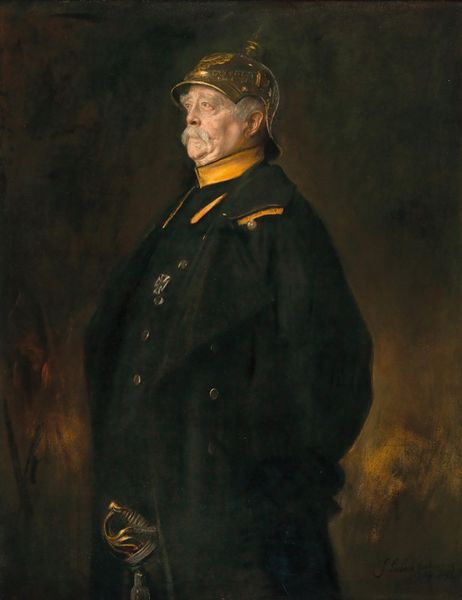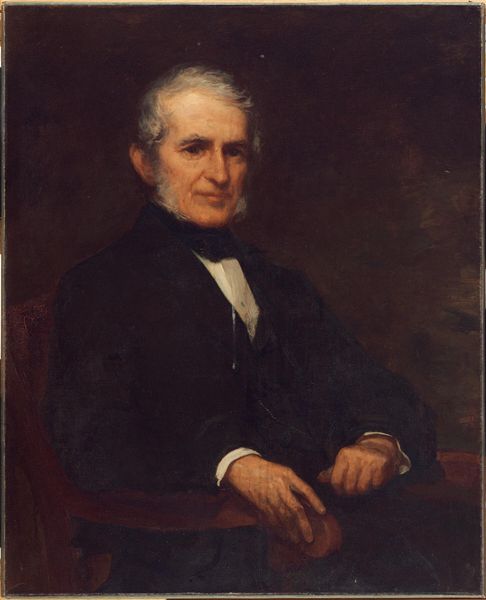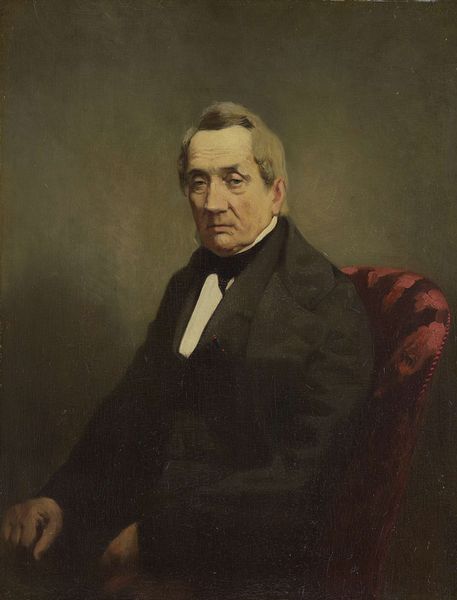
painting, oil-paint
#
portrait
#
painting
#
oil-paint
#
oil painting
#
romanticism
#
history-painting
#
academic-art
Copyright: Public domain
This is a portrait of Charles Jerome, Comte Pozzo di Borgo, painted by Franz Xaver Winterhalter. While the date of this artwork isn't known, Winterhalter was most active during a time of immense social upheaval in Europe. Pozzo di Borgo is portrayed here, a Corsican diplomat who served the Russian Empire. His attire reflects not only his status but also the complex intersection of power, class, and identity in 19th-century Europe. The lavish fur draped over his shoulders speaks to wealth and privilege, but it also hints at the fraught relationship between humans and the natural world. His stern gaze and formal posture convey authority. Consider the emotional implications of such a portrait. Is it meant to inspire admiration, or does it serve as a reminder of the stark inequalities of the time? What does it mean to immortalize a figure like Pozzo di Borgo, whose life was intertwined with the political machinations of empires? This portrait reflects on the historical moment while provoking questions about legacy, power, and representation.
Comments
No comments
Be the first to comment and join the conversation on the ultimate creative platform.
